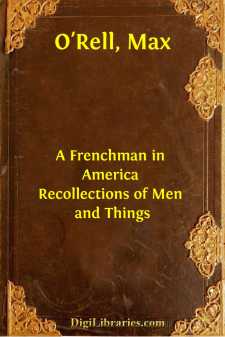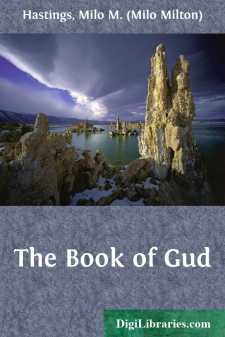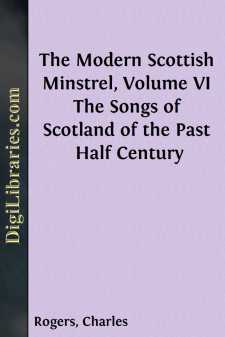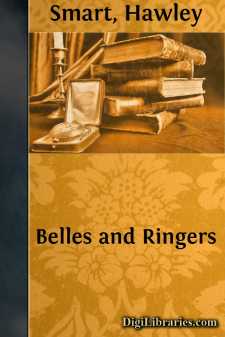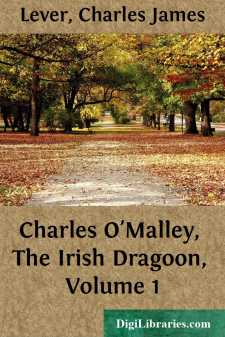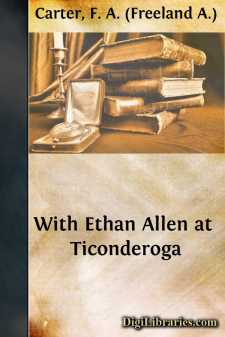Categories
- Antiques & Collectibles 13
- Architecture 36
- Art 48
- Bibles 22
- Biography & Autobiography 813
- Body, Mind & Spirit 142
- Business & Economics 28
- Children's Books 15
- Children's Fiction 12
- Computers 4
- Cooking 94
- Crafts & Hobbies 4
- Drama 346
- Education 46
- Family & Relationships 57
- Fiction 11829
- Games 19
- Gardening 17
- Health & Fitness 34
- History 1377
- House & Home 1
- Humor 147
- Juvenile Fiction 1873
- Juvenile Nonfiction 202
- Language Arts & Disciplines 88
- Law 16
- Literary Collections 686
- Literary Criticism 179
- Mathematics 13
- Medical 41
- Music 40
- Nature 179
- Non-Classifiable 1768
- Performing Arts 7
- Periodicals 1453
- Philosophy 64
- Photography 2
- Poetry 896
- Political Science 203
- Psychology 42
- Reference 154
- Religion 513
- Science 126
- Self-Help 84
- Social Science 81
- Sports & Recreation 34
- Study Aids 3
- Technology & Engineering 59
- Transportation 23
- Travel 463
- True Crime 29
Sort by:
by:
Max O'Rell
CHAPTER I. Departure—The Atlantic—Demoralization of the “Boarders”—Betting—The Auctioneer—An Inquisitive Yankee. On board the “Celtic,” Christmas Week, 1889. In the order of things the Teutonic was to have sailed to-day, but the date is the 25th of December, and few people elect to eat their Christmas dinner on the ocean if they can avoid it; so there are only twenty-five saloon...
more...
Chapter I DIP INTO THIS NOVEL ANYWHERE.... It deals with a god in whom nobody believed, and of his adventures the day after eternity. For instance, try Chapter XVI. One Sunday afternoon I was driving through a sparsely settled region on the southwest slope of the Catskills. It was growing late and I was anxious to get back to New York, but I had lost my way. In an attempt to cut across to the Hudson...
more...
CHAPTER I I want to state right at the start that I am writing this story twenty years after it happened solely because my wife and Señor Buck Johnson insist on it. Myself, I don't think it a good yarn. It hasn't any love story in it; and there isn't any plot. Things just happened, one thing after the other. There ought to be a yarn in it somehow, and I suppose if a fellow wanted to lie...
more...
by:
Charles Rogers
INTRODUCTION. As if pointing to a condition of primeval happiness, Poetry has been the first language of nations. The Lyric Muse has especially chosen the land of natural sublimity, of mountain and of flood; and such scenes she has only abandoned when the inhabitants have sacrificed their national liberties. Edward I., who massacred the Minstrels of Wales, might have spared the butchery, as their...
more...
by:
Hawley Smart
BELLES AND RINGERS. CHAPTER I. TODBOROUGH GRANGE. Todborough Grange, the seat of Cedric Bloxam, Justice of the Peace, and whilom High Sheriff for East Fernshire, lies low. The original Bloxam, like the majority of our ancestors, had apparently a great dislike to an exposed situation; and either a supreme contempt for the science of sanitation, or a confused idea that water could be induced to run...
more...
CHAPTER 1. CHAUCER'S TIMES. The biography of Geoffrey Chaucer is no longer a mixture of unsifted facts, and of more or less hazardous conjectures. Many and wide as are the gaps in our knowledge concerning the course of his outer life, and doubtful as many important passages of it remain—in vexatious contrast with the certainty of other relatively insignificant data—we have at least become...
more...
by:
Jack London
San Francisco Bay is so large that often its storms are more disastrous to ocean-going craft than is the ocean itself in its violent moments. The waters of the bay contain all manner of fish, wherefore its surface is ploughed by the keels of all manner of fishing boats manned by all manner of fishermen. To protect the fish from this motley floating population many wise laws have been passed, and there...
more...
PREFACE The success of Harry Lorrequer was the reason for writing Charles O'Malley. That I myself was in no wise prepared for the favor the public bestowed on, my first attempt is easily enough understood. The ease with which I strung my stories together,—and in reality the Confessions of Harry Lorrequer are little other than a note-book of absurd and laughable incidents,—led me to believe...
more...
by:
Enid Bagnold
CHAPTER I THE TRAVELLER The war had stopped. The King of England was in Paris, and the President of the United States was hourly expected. Humbler guests poured each night from the termini into the overflowing city, and sought anxiously for some bed, lounge-chair, or pillowed corner, in which to rest until the morning. Stretched upon the table in a branch of the Y.W.C.A. lay a young woman from England...
more...
A BOY OF THE WILDERNESS The forest was still. A calm lay upon its vast extent, from the green-capped hills in the east to the noble river which, fed by the streams so quietly meandering through the pleasantly wooded country, found its way to the sea where the greatest city of the New World was destined to stand. The clear, bell-like note of a waking bird startled the morning hush. A doe and her fawn...
more...


